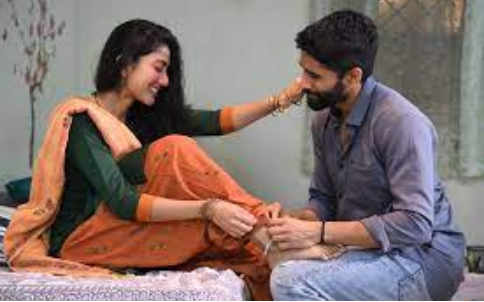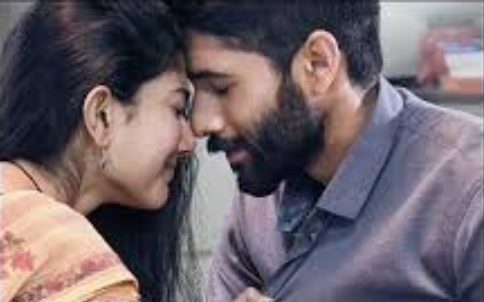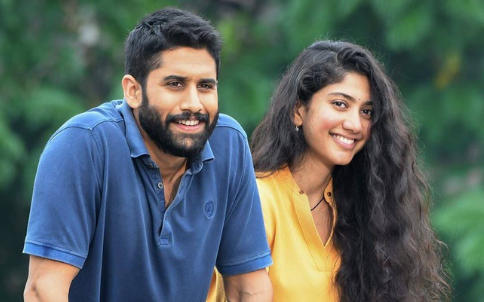Sekhar Kammula is a director who has created a niche for himself within a short span of time. Most of his movies have had a touch of feminist streak. For example in Anand, Kamalinee Mukherjee’s character Roopa is a woman with self respect, she is someone who places importance on her freedom and individuality. Roopa walks out of her marriage with a guy called Rahul when she realizes that her freedom and individuality are not being respected by him. In the film Godavari too the female character is a career oriented woman who is determined to become a successful business woman. The above mentioned films along with Fida dealt with these issues in a feel good manner and had immense repeat value. With Love story director Sekhar Kammula takes up a romantic film with serious undertones of caste and gender. While the film is a brave attempt within the format of a mainstream Telugu film but it had the potential to be better. Two things act as a huge deterrent. One is the length, at two hours and forty five minutes, the film feels too long. It could have been easily cut short by twenty to thirty minutes. Another issue is that the narration which reminds you of films like Highway and Sairat.

The film begins off with the introduction of Naga Chaitanya’s Revanth, he comes from a lower caste in Armoor, Telangana. He has grown up listening to his mother about how it’s always better to be in a position where you can give financial assistance rather than having to receive it. Revanth is settled in Hyderabad, he runs a small Zumba centre. There are challenges but he is in a position where he can employ someone. Revanth has a dream of expanding the Zumba centre. Sai Pallavi’s Mounica on the other hand is a girl from an upper-caste family. Her family has acres of land but still she has to fight for her rights- financial and otherwise. Mounica finds her wings by partnering with Revanth but she is living in a constant fear, Mounica’s fear is regarding her family and what will they say if they find out about her work. She is particularly scared of her babai (uncle) played by Rajeev Kanakala. Mounica has a condition of trembling if anyone touches her. In fact her condition for joining with Revanth is that two feet distance must always be maintained. This problem has nothing to do with caste as we come to know later on.
Also read: Thalaivii: Starts off promisingly but loses steam midway
Sekhar Kammula is most successful with how he develops the character of Revanth. It has been dealt with utmost sensitivity. Sekhar doesn’t resort to unnecessary commercial elements to prop up the character. Revanth is someone who tries to avoid conflicts as much as possible. He tries to solve problems through peace. There is only one scene towards the end where Revanth feels that enough is enough and decides to fight back. However this action scene works because of the context behind it. It is also refreshing to see Naga Chaintanya come out of his comfort zone playing a character like this. Naga Chaintanya delivers a career defining act. He gets the nuances of the role spot on starting from the accent.
Also read: Cinderella 2021: A vibrant take on an old fairytale
The caste disparities have also been portrayed well. Although these scenes remind you of Sairat they still work. For example there is a scene where Revanth and her mother are looked down upon by the household of Mounica. Revanth is mocked by Mounica’s mother based on his attire and she doesn’t think twice before offering him second- hand shirts.

Sekhar Kammula also does a good job in portraying Mounica’s psychological condition. The reason why she asks to maintain two feet distance has been well explained.
Also read: Looking at Partition through Bollywood lens
Lastly the scenes between Naga Chaitanya and Easwari Rao who plays the mother are a delight to watch. Her character is someone who is the moral centre of the film. Their relationship is one of the most satisfying aspects of the film. Eshwari Rao is very good in her role.
Also read: Shershah: An engaging war drama within the confines of a familiar space
The biggest issue with Love Story is that Sekhar Kammula takes too much time in building up the love. There are too many Zumba dances which take half of the screen time. Too much time is also spent on the hero and hero’s introduction. As a result there are times when you feel that some scenes have been added without any purpose.
Also read: ‘She is real, not an imaginary queen’
While Sai Pallavi is good in her role elements of Fida are very glaring. The Telangana accent and the dances are straight out of Fida. The crying scenes towards the end are too melodramatic and it acts as a hindrance for the audiences in completely sympathizing with the character.
Also read: Grahan: An impactful story handled with great sensitivity
Logically also there are some glaring loopholes. Uttej’s character is supposed to be an important role but he disappears when the hero needs him the most. The character of Sai Pallavi’s sister is also left midway.
Also read: Haseen Dilruba: An exploration of love and marriage under the guise of a thriller
The hangover of Sairat and Highway also compound the issues. This hangover will be particularly felt for those who have seen the above mentioned ones.
Also read: Ray (anthology): A good tribute to Satyajit
Love Story isn’t a bad film but it doesn’t have the repeat value of Sekhar Kammula’s Anand, Godavari and Fida.
Also read: Sach Kahoon Toh: An insightful account of Neena Gupta’s life




